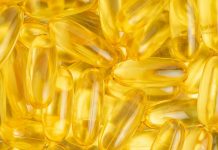
A surge in sodium nitrite-related poisonings in recent years has raised alarm among health experts, primarily in Ontario and Alberta, but also in the United States.
While sodium nitrite is commonly used in food processing, particularly in curing meats, it has increasingly been utilized in suicides.
The Scale of the Problem
Canada: Ontario has recorded 28 sodium nitrite poisoning deaths between 1980 and 2020, with a significant spike in the last two years.
The Alberta Health Service’s poison center has also reported cases causing serious harm. The real numbers are likely higher as Canada lacks comprehensive data on sodium nitrite poisoning.
United States: The National Poison Data System recorded 47 cases between 2015 and 2020, with most occurring in 2019 and 2020.
Drivers of the Increase
Online forums detailing how to use sodium nitrite for suicide appear to be contributing to the surge in poisonings.
E-commerce platforms like Amazon have also become key marketplaces for the substance, though recent lawsuits have curtailed this somewhat.
Identifying Sodium Nitrite Poisoning
Sodium nitrite ingestion leads to methemoglobinemia, a condition where insufficient oxygen reaches the body’s cells.
Symptoms include a rapid heart rate, bluish-purple skin, low oxygen levels, and chocolate-brown colored blood. Rapid treatment with methylene blue is vital.
Regulatory Approaches
Stricter Monitoring
While banning the substance outright might be challenging due to its legitimate uses in the food industry, some experts suggest that online sales could be more closely regulated to prevent easy access for nefarious purposes.
Precedents
The United Kingdom has listed sodium nitrite as a “reportable substance,” requiring sellers to report suspicious purchases.
After Sri Lanka banned certain pesticides, suicide rates in the country dropped significantly.
Other Options
Selling sodium nitrite in quantities too small to be lethal is another avenue for regulation, though its efficacy is debatable. Another approach could be restricting sales to businesses while limiting access for individuals.
Official Stance
Health Canada suggests that regulatory action might not be the best tool to combat intentional poisonings due to sodium nitrite’s other legitimate uses. Their focus remains on mental health support.
What’s Next?
The rising number of sodium nitrite poisonings represents a complex public health issue that intertwines mental health, online culture, and regulatory challenges.
Whether stricter regulations would effectively deter poisonings remains to be seen. Still, experts agree that action of some kind is urgently needed.
Follow us on Twitter for more articles about this topic.
Copyright © 2023 Scientific Diet. All rights reserved.








